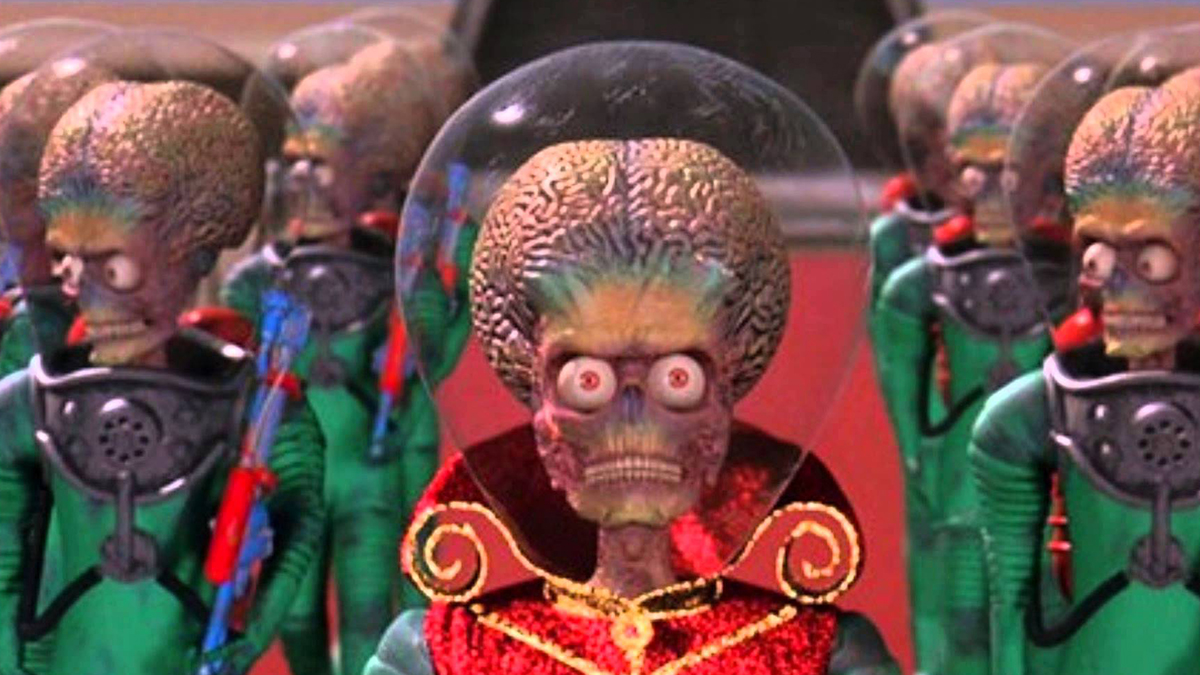As I’ve written elsewhere, Mars has exercised a hold on the collective imagination quite unlike any other planet for the past couple of centuries. Until space probes in the mid-60s first showed us that it is a hostile, frozen, barren desert world, Mars was the paradigmatic home of intelligent aliens: the proverbial “little green men”.
I well remember the countdown to the first Viking probe landing on Mars. That night, I dug out my old pop-sci books and pored over their fanciful illustrations of Martian jungles. Naturally, I was massively disappointed when the Viking confirmed that Mars is a dead, in many ways poisonous world.
Yet, even knowing what we now do about Mars, we somehow can’t let go of the hope that Mars harbours at least microbial life. Many of the recent wave of probes and landers sent to Mars are explicitly dedicated to detecting possible signs of life. The current mission, Perseverance, has landed in what is believed to be an ancient river delta in Jezero Crater.
Just about everyone is hoping Perseverance will find life. Everyone except Oxford University philosopher Nick Bostrom. “I would find it interesting, certainly – but a bad omen for the future of the human race,” he wrote in the MIT Technology Review.
“I hope that our Mars probes discover nothing. It would be good news if we find Mars to be sterile. Dead rocks and lifeless sands would lift my spirit.”
Nerds practically worship at the feet of Nick Bostrom. Still, he’s an Oxford philosopher (then again, so was Theodor Adorno, founder of the ridiculous Critical Theory) and I’m not, even if some of his ideas seem risible, such as the Simulation Argument, which seems little more than Creationism for geeks.
But, is Bostrom onto something in rooting for a dead Mars?
To understand why Bostrom is concerned – and why you might be too – we need to dive into the science of alien life.
While Mars today is hostile to Earth-like life, it wasn’t always so. Billions of years ago, Mars was awash with rivers, lakes and seas, and a thicker and possibly warmer atmosphere – and, importantly, an active core which generated colossal volcanoes and almost certainly hot springs. In other words, a welcoming petri dish for life-as-we-know-it. Indeed, it is claimed that intriguing microstructures found in Martian meteorites on Earth may be the fossilised remains of ancient Martian microbes.

If life or its remains are found on Mars, then that might indicate that life is less rare than we might think. After all, if life began on Mars as it did on Earth, then life could and surely has sprouted throughout the universe.
There are somewhere between 100 and 400 billion stars in our galaxy, the Milky Way. And by scientists’ best estimate, there are hundreds of billions of galaxies in the universe.
We now know that nearly every star has at least one planet. It seems mathematically impossible for complex life not to exist elsewhere, right?
Modern humans evolved just 200,000 years ago, barely a blink in the eye of the 13.8 billion-year-old universe, yet we’re already working on interplanetary colonisation.
It would seem aliens have had plenty of time to colonise the galaxy.
So – where are they?
This is what physicist-philosopher Paul Davies calls The Eerie Silence. It’s also known as the Fermi Paradox.
One possible answer is a mysterious concept called “the Great Filter”.
This is the answer to the Fermi Paradox that gives Bostrom the shivers.
If we accept alien life should exist, and it has had plenty of time to colonise our galaxy, the question becomes: what is stopping it?
Is there some great limit – a great filter – imposed on life that stops it colonising the galaxy?
Perhaps there is something exceptionally difficult about going from basic life to complex, intelligent life? Perhaps life gets stuck somewhere along the way?
Certainly, interstellar space travel is a formidable obstacle. Space, as Douglas Adams said, “is big. Really big.” So big that, with our current technologies, it would take centuries to reach even the nearest stars. Even at unimaginable velocities approaching the speed of light – so far as we know, the ultimate speed limit: nothing can go faster than light – a jaunt to Alpha Centauri would take years. Crossing the galaxy would take 200 million years.
So, maybe the galaxy is teeming with life, even intelligent species, all sitting in lonely isolation around our respective suns.
But then, why the silence?
Light travels at, well, the speed of light. As such, human radio broadcasts will have travelled some hundred light years by now. While that’s still “peanuts compared to space”, it also encompasses thousands of stars. On the flipside, if there are other intelligent species on even one of the hundreds of thousands of stars within a few hundred light years of Earth, why haven’t we heard from them? Why aren’t we picking up alien breakfast talk shows or sitcoms?
With that in mind, Bostrom’s hope for a dead Mars becomes clear.
We won’t find life on Mars, because life is exceptionally, exceptionally rare, and we somehow lucked out. Intelligent life is probably exceptionally rare.
That means there is no great filter. Life, and especially intelligent life, really is as rare as we feared. On the other hand, if there’s life on Mars, then it should be everywhere.
What if countless alien civilisations have got to where we are before and then been wiped out by something?[…]
If we find life on Mars, you’ve got to wonder: what is that great cataclysm that stopped other alien races from colonising the stars – and can we survive it?
The Age
There is another possibility, of course, if we do find life on Mars.
As the discovery of Martian meteorites on Earth shows, our two planets very occasionally share material. Research has also shown that microbial life can survive incredibly hostile environments, even (at least to a limited extent) space. It might be the case that, in our multi-billion-year history of rock-swapping, life that began on Earth (or even Mars) was thus seeded on the other planet.
So, the creation of life would indeed be vanishingly rare, but isolated not just on Earth but the Solar System.
Which raises the perhaps equally depressing prospect that we really are alone.
Please share this article so that others can discover The BFD

